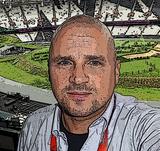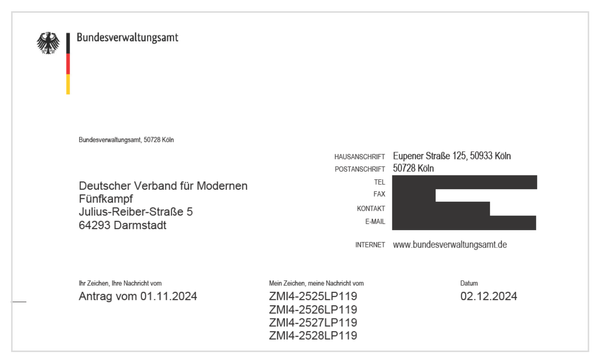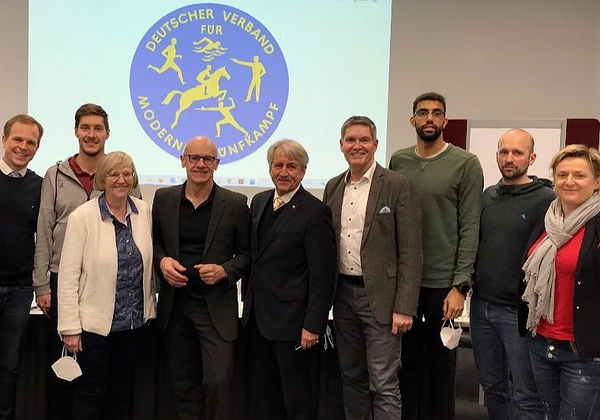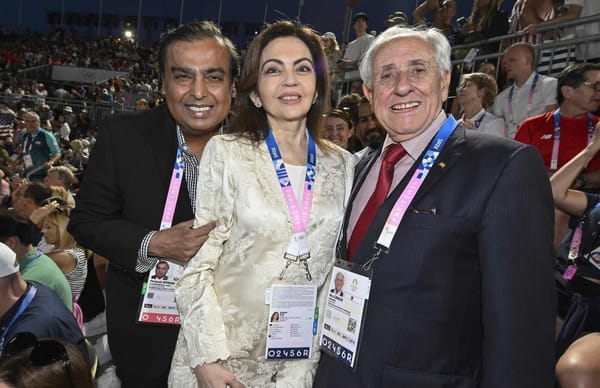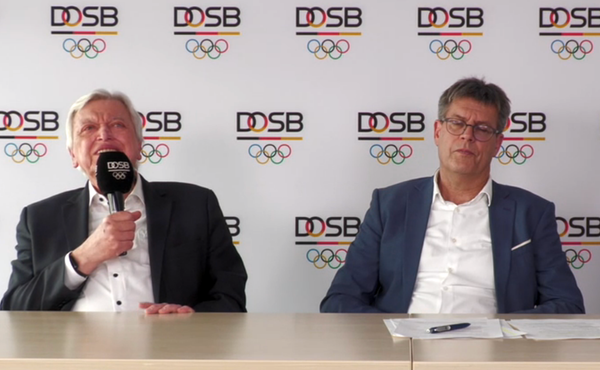Olympic powerbroker Sheikh Al-Sabah sentenced to prison
Sheikh Ahmad Al-Sabah has been sentenced to prison. Our author has observed the Kuwaiti Sheikh for many years and has been threatened by the Sheikh’s aides several times. He describes the methods that brought Ahmad to power and the implications of the conviction for Al-Sabah and the Olympic system.

On the day of his sentencing, he lost his smile. The always good-humoured and curly-haired IOC Sheikh looked grey and serious on his most difficult trip of all time to Switzerland on September 10, 2021. Sheikh Ahmad Al-Fahad Al-Sabah, 58 years old and one of the most influential Olympic sports officials of this century, was sentenced to prison by a criminal court in Geneva, just a few dozen kilometers from the IOC headquarters in Lausanne.
„Olympic power broker Sheikh Ahmad found guilty of forgery.“ This news went around the world in early September 2021.
A month later, the Association of National Olympic Committees (ANOC), where Sheikh Ahmad is still listed as president, has not yet issued a clear statement on the matter.
The International Olympic Committee (IOC), where Ahmad is still listed as a member, has also not taken any decisive action, but has only claimed what has been claimed for many years: the so-called Ethics Commission is monitoring all developments. There was not even an official statement from the IOC but only a few words from an IOC speaker.
The Olympic Council of Asia (OCA) declared immediately after the verdict:
„Following today’s verdict (…) Sheikh Ahmad announced that he will step aside temporarily as President of OCA whilst he clears his name during an appeal process in the Swiss courts.“
Indian Raja Randhir Singh, a good old fellow of the Sheikh and long-time IOC member, now honorary member, took over the OCA leadership ad interim as acting president.
Sheikh Ahmad had already temporarily resigned from his positions in the IOC, including the chairmanship of the Olympic Solidarity Commission that is responsible for distributing roughly USD 500 million, and ANOC in 2018, immediately after the Swiss indictment came to light.
Mind you, only temporarily. Temporarily self-suspended is the Olympic term.
The office of Sheikh Ahmad then announced:
„It should be remembered that Sheikh Ahmad has had the honour of being an IOC member for 26 years and he fully intends to continue serving the IOC again at the earliest opportunity. Sheikh Ahmad has every confidence and trust in the Swiss courts and IOC Ethics Commission’s impartial due process and that he will be completely exonerated.“
IOC’s so-called Ethics Commission and the Executive Board were satisfied for the time being:
„The Executive Board emphasises that the presumption of innocence prevails and recognises that Sheikh Ahmad Al-Fahad Al-Sabah has taken the correct course of action with regard to the Olympic Movement.“
IOC ethics? Different rules for athletes and officials
This has been going on for years. Compare such absurd rules with those that apply to normal officials or, above all, to athletes: For example, if an athlete is found to have taken a doping substance, he or she is banned. What would happen to an athlete who was sentenced to prison for fraud? How would the federations deal with it?
We all know the answer.
Officially, the Geneva judgement should have been the end of Sheikh Ahmad’s Olympic ambitions. The Sheikh can no longer become IOC president – at least that seems to be clear.
Unofficially, however, Ahmad will continue to pull the strings in numerous associations and institutions. As he has done since 2017, since he either withdrew (FIFA) or temporarily suspended himself (IOC, ANOC) in his three most important functions.
Until the Geneva criminal court’s verdict, however, he remained very active as OCA president. In December 2020, for example, he managed the spectacular awarding of the Asian Games 2030 and 2034 to the then still hostile Arab brothers in Qatar and Saudi Arabia – in the spirit of „friendship, solidarity and unity“.
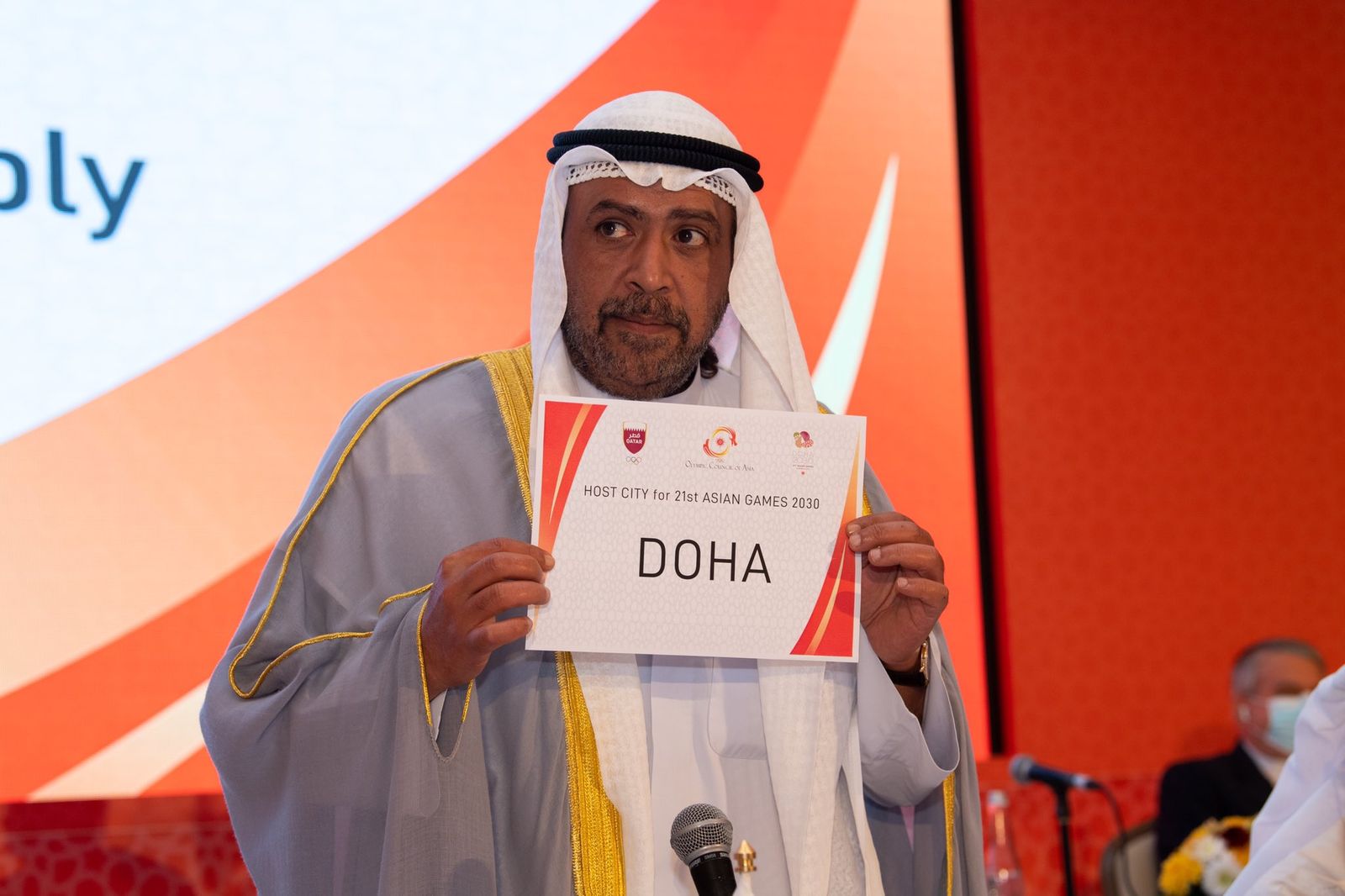
Olympic espionage: Operation Hawk, an ICSS project
In the sports business, Sheikh Ahmad long hovered one level higher than Qatar’s Emir Tamim Bin-Hamad Al-Thani, who has been an IOC member since 2002, and Saudi Arabia’s Crown Prince Mohammed Bin Salman Al-Saud, who has also been pumping billions into world sport for several years. In recent years, however, Emir Tamim has given his influential IOC brother Ahmad a kind of sports-political asylum in Doha. In return, Sheikh Ahmad helped to push through Qatar’s interests.
This is surprising because a few years ago Qatar apparently carried out the covert espionage Operation Hawk through employees of the dubious International Center for Sport Security (ICSS) in Doha. For example, at an IOC meeting in Lausanne in the Sheikh’s favorite hotel, the Beau-Rivage Palace, data was apparently extracted from the computers of Ahmad and his most important helper, Husain Al-Musallam.
According to the records, one of the objectives of Operation Hawk was to oust Sheikh Ahmad from his positions and to replace him with Qatari officials. Numerous documents on this were found in the Football Leaks dataset.
The politically highly explosive details that reveal the alleged good governance center ICSS as an espionage institution were published by Mediapart („How Qatar used an anti-corruption organisation to spy on its rivals“) and DER SPIEGEL. The ICSS then claimed: „We say categorically that no crimes have been committed by any person working with, or for the ICSS undertaking sport integrity investigations.“
Business as usual during „self-suspension“: dirty deals
Time has changed. The IOC brothers Tamim and Ahmad are cooperating. For example, in spring 2019, when Sheikh Ahmad was already temporarily self-suspended, he helped to get Qatar’s delegate onto the FIFA Council at the Asian Football Confederation (AFC) Congress. He also offered inducements to Mariyam Mohamed (Seychelles) to withdraw her candidature for election to the AFC Executive Committee.
In the latter case, a chamber of the Court of Arbitration for Sport (CAS) made another of many highly absurd awards in January 2021. Because Mariyam Mohamed had refused the Sheikh’s unfair offer, the CAS ruled: „While the Panel found the third-party interference established, it underlined that it did not, in the end, have an effect on the elections.“
The art of the CAS arbitrator was not to mention the name of this third party: Sheikh Ahmad.
In October 2019, in Doha, I myself observed Sheikh Ahmad, temporarily self-suspended, receiving numerous delegates at the ANOC Congress in an office just opposite the assembly hall. Strange scenes took place. The Sheikh’s aides called delegates into the office one by one. At least one of these delegates, who marched into the office with a briefcase, ensured a little later that an ethics reform in the African Olympic Committee was adjourned.

